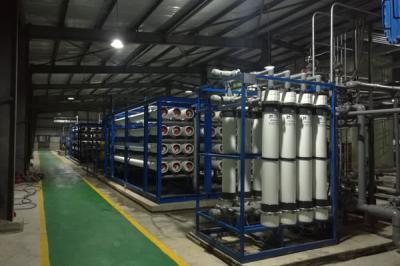As the craft beer industry continues to boom, it becomes increasingly important for brewers to ensure that they are using the most advanced and efficient brewing processes. One of the key advancements in the industry is beer membrane filtration. This innovative technique has revolutionized the way beer is filtered, resulting in a higher quality and more consistent final product. In this blog post, we will explore how beer membrane filtration transforms brew processes and why it is becoming a popular choice among brewers worldwide.
Beer membrane filtration is a modern filtration method that uses specialized membranes to remove impurities and particles from beer. Unlike traditional filtration methods that rely on large-scale equipment and multiple steps, beer membrane filtration is a single-step process that offers greater efficiency and control. By using a series of ultrafiltration and microfiltration membranes, it effectively removes unwanted substances such as yeast, bacteria, and sediment from the beer, while still preserving the important flavors and aromas.
The adoption of beer membrane filtration in breweries has been driven by the numerous benefits it offers. Firstly, it provides brewers with greater control over the filtration process, allowing them to precisely adjust the level of filtration and achieve consistent results every time. This is crucial for maintaining the quality and taste of the beer, as it prevents any unwanted flavors or impurities from entering the final product.
Secondly, beer membrane filtration greatly reduces the risk of contamination. Traditional filtration methods often require the use of diatomaceous earth or other filter aids, which can introduce unwanted substances into the beer. In contrast, beer membrane filtration does not require the use of filter aids, minimizing the risk of contamination and ensuring a cleaner beer.
Lastly, beer membrane filtration enables breweries to achieve higher production volumes. Its efficiency and speed allow for faster filtration times, ultimately increasing the overall production capacity. This is particularly beneficial for craft breweries looking to scale up their operations without compromising on the quality of their beer.
Jiuwu's decision to adopt beer membrane filtration stemmed from the desire to improve the clarity and stability of its beers without compromising the unique flavors and aromas. We recognized that traditional filtration methods often led to a loss of desired characteristics and decided to invest in beer membrane filtration to overcome this challenge.
By using Jiuwu's state-of-the-art membranes, we have successfully achieved greater control over its filtration process, resulting in a more refined and consistent product. The improved filtration efficiency has also allowed Jiuwu to increase production volumes while maintaining their commitment to quality.
With the growing demand for high-quality craft beers, it is evident that beer membrane filtration will play an increasingly significant role in the future of brewing. This innovative technique not only improves the overall quality and consistency of beers but also offers efficiency, control, and scalability to breweries. As more brewers recognize the benefits of beer membrane filtration, we can expect to see its widespread adoption and continued advancements in membrane technology.
In conclusion, beer membrane filtration has transformed brew processes by providing brewers with greater control, reduced risk of contamination, and increased production capacity. Jiuwu have already reaped the benefits and achieved remarkable results through this advanced filtration technique. As the craft beer industry continues to evolve, beer membrane filtration will remain a crucial element in brewing the perfect pint.




 +86-25-58849045
+86-25-58849045
 +86-25-58749295
+86-25-58749295
 jiuwu@jiuwu.com
jiuwu@jiuwu.com
 No. 9 Park Road, Pukou District, Nanjing City (Sanqiao Factory)
No. 9 Park Road, Pukou District, Nanjing City (Sanqiao Factory) Call us on:
Call us on:  Email Us:
Email Us:  No. 9 Park Road, Pukou District, Nanjing City (Sanqiao Factory)
No. 9 Park Road, Pukou District, Nanjing City (Sanqiao Factory)

 English
English 한국어
한국어 français
français русский
русский Español
Español

